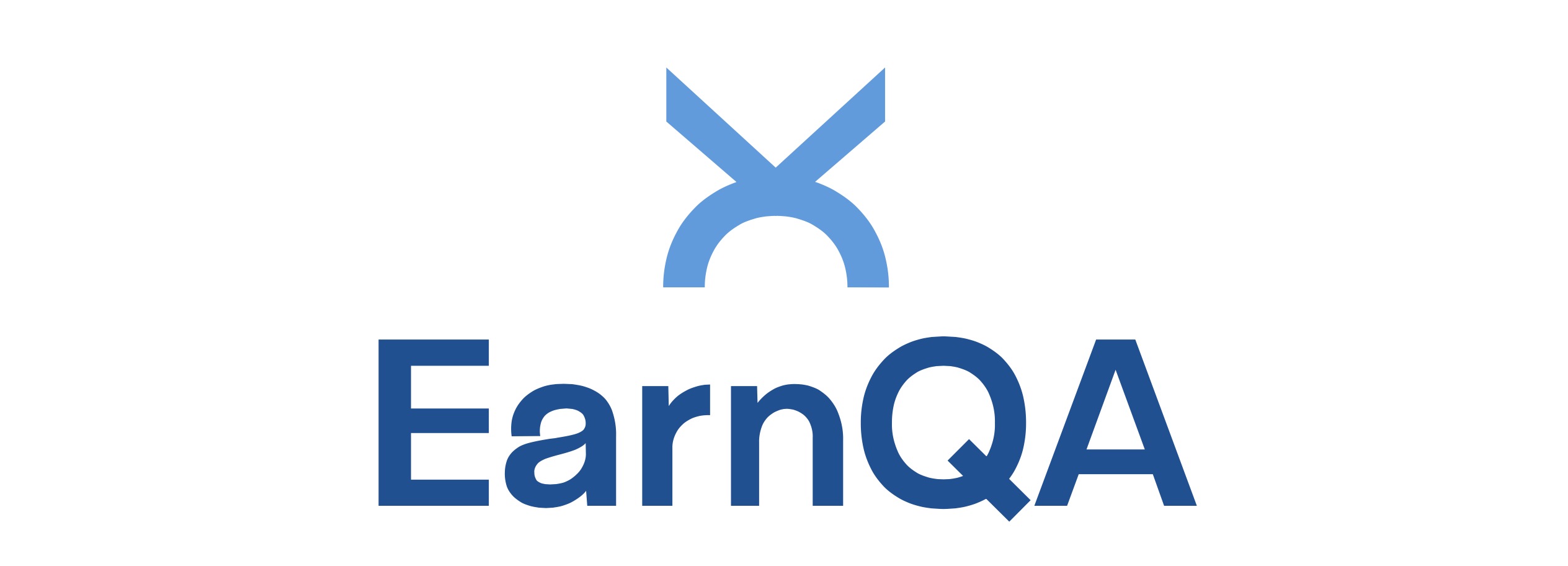Quality Control Solutions
What Is the Best QA Software for Small Businesses?
Finding the best QA software for small businesses can be overwhelming, but we've got the key features and top options to help you make the right choice.

Searching for the ideal QA software for small businesses can feel like trying to find a needle in a haystack, but have no fear, we’ve got your back.
With the abundance of options available, it's crucial to navigate through the maze of features, costs, and user-friendliness to find the perfect fit. From compatibility with existing systems to the level of support and training resources, the journey to finding the best QA software for small businesses is rife with considerations.
So, how does one navigate this complex landscape and make the right choice? Keep reading to uncover the key features to look for, the benefits of QA software, and the top-quality assurance software options that cater to small business needs.
Key Takeaways
- There are various vendors offering automated testing software for small businesses, such as ComplianceQuest, Dot Compliance, and MasterControl Quality Excellence.
- Small businesses should look for QA software that is affordable, compatible with different platforms, and accessible through web-based software for easy collaboration.
- QA software can provide benefits such as efficient bug tracking, streamlined testing processes, improved software quality, and essential tools for project management.
- Factors to consider when choosing QA software for small businesses include affordability, compatibility with existing systems, available support options, user ratings and reviews, and integration functionality.
Understanding Quality Assurance Software
Understanding quality assurance software involves evaluating its effectiveness in improving processes and ensuring product quality. For small businesses, the right testing software can make a significant impact on overall quality management.
Capterra, a platform dedicated to helping small businesses make informed purchase decisions, lists various vendors offering automated testing software suitable for small businesses. These options aren't only free but also compatible with multiple platforms, providing cost-effective solutions for quality assurance.
Additionally, cloud-based quality management software like ComplianceQuest, Dot Compliance, and MasterControl Quality Excellence are highly rated options tailored to the needs of small businesses.
In the realm of software testing tools, solutions like Tricentis Testim, Tricentis Tosca, Kobiton, and Appsurify TestBrain stand out for their scalability, AI-powered capabilities, and focus on mobile-first approaches, making them ideal choices for small businesses seeking to enhance their quality assurance processes.
Furthermore, support options for various software tools, construction project management software, and ERP systems for manufacturing are also available, catering to the diverse needs of small businesses in their pursuit of quality assurance excellence.
Key Features to Look for

After evaluating the effectiveness of quality assurance software for small businesses, it's crucial to identify the key features that can significantly impact overall quality management. When selecting QA software, small businesses should prioritize:
- Affordability: Look for options with free or low-cost plans to ensure that the software fits within the budget constraints of a small business.
- Platform Compatibility: Ensure that the software is compatible with various platforms such as Android, iPhone, Mac, and Windows to cater to diverse technological environments.
- Accessibility: Opt for web-based software that allows easy access and collaboration, enabling team members to contribute from different locations.
- Reputation: Select top-rated and highly reviewed software options to increase the likelihood of success and satisfaction with the chosen solution.
- Tailored Support: Seek software that supports small businesses with streamlined testing processes, as it's essential to have the right level of support to effectively implement the software.
Benefits of QA Software
We find that QA software offers small businesses the ability to efficiently track and resolve bugs and issues, ultimately leading to improved software quality and enhanced productivity. It allows for the streamlined testing process, resulting in faster and more accurate testing. This, in turn, leads to improved software quality, time and cost savings, and enhanced productivity for small businesses.
Additionally, QA software provides essential tools for software team project management, including agile dashboards for creating a software testing strategy and organizing teams, tasks, and projects. The affordability, functionality meeting complex requirements, ease of use, accurate and reliable results, and organization options are crucial benefits for small businesses when choosing quality assurance software.
Furthermore, the inclusion of testing tools such as Selenium WebDriver, Selenium IDE, and Selenium Grid provides valuable support for web development, enabling browser-based automated testing, quick bug reproduction script creation, and the ability to run tests on multiple machines and environments. This comprehensive approach to test management and software quality is vital for small businesses aiming to maintain a competitive edge in the market.
Factors to Consider for Small Businesses

Considering the specific needs and constraints of small businesses, several key factors must be carefully evaluated when selecting QA software.
- Affordability: The cost of the software and any potential additional fees should align with the small business's budget.
- Compatibility: The software must be compatible with the operating systems and devices used by the business to ensure seamless integration.
- Support Options: Available support options such as phone support, live chat, knowledge base, and email/help desk are crucial for small businesses with limited resources.
- User Ratings and Reviews: Checking the ratings and reviews from other small businesses can provide insights into the software's performance and reliability.
- Integration and Functionality: The software's functionality, its ability to integrate with existing systems, and its suitability for the business's specific needs are essential considerations.
For small businesses, these factors play a critical role in selecting the right QA software that aligns with the requirements of QA teams, software development, testing platform, and management tool.
It's imperative to make informed decisions based on these considerations to ensure optimal efficiency and effectiveness in the software testing processes.
Top-Quality Assurance Software Options
Among the top-quality assurance software options, several stand out for their robust features and support for small business needs in quality assurance. We have compiled a list of some of the top-rated software options that offer comprehensive solutions for small businesses in the realm of quality assurance.
| Software | Platform | Features |
|---|---|---|
| Automated Testing Software | Web-based | Free, compatible with Android, iPhone, Mac, and Windows |
| Datadog Software | Cloud-based | Robust features, 4.5 rating |
| ComplianceQuest | Cloud-based | Highly rated, user ratings above 4.5 |
| Dot Compliance | Cloud-based | Highly rated, user ratings above 4.5 |
These software options provide a range of features, from compatibility with multiple platforms to robust cloud-based solutions. They are designed to meet the needs of small businesses in quality assurance, offering scalable and mobile-first solutions for effective testing. Additionally, the availability of free options makes them suitable for small businesses looking to optimize their quality assurance processes without significant financial investment.
User-Friendly QA Solutions

User-friendly QA solutions streamline testing processes and enhance efficiency for small businesses. When considering software options, it's crucial to prioritize user-friendly solutions to maximize productivity. Here are some key features to look for in user-friendly QA solutions:
- Intuitive Interface: Look for software with a clean and intuitive interface to minimize the learning curve for your team.
- Flexibility for Web Apps: Ensure that the QA software can handle testing for web applications, which are commonly used by small businesses.
- Mobile Testing Capabilities: With the increasing reliance on mobile apps, it's essential to choose a solution that supports comprehensive mobile testing.
- Seamless Bug Reporting: The ability to easily report and track bugs is vital for efficient issue resolution and continuous improvement.
- Customizable Workflows: Opt for QA software that allows for customizable workflows to adapt to your small business's specific testing needs.
Cost-Effective QA Tools

Cost-effective QA tools are essential for small businesses looking to maintain quality while managing their budget.
Capterra offers free access for users and connects vendors with potential customers, making it a cost-effective option for small businesses.
Automated testing software provides free options and compatibility with various operating systems, making it accessible and cost-effective for small businesses.
The availability of top-rated automated testing software options ensures that small businesses can access high-quality tools without breaking the bank.
Additionally, Quality Management Software options such as ComplianceQuest and Dot Compliance offer highly rated, cloud-based solutions suitable for small businesses, providing cost-effective quality assurance.
Support options, such as Email/Help Desk and Knowledge Base, offered by various QA software providers ensure that small businesses can receive assistance without significant additional costs.
These cost-effective QA tools enable small businesses to streamline their testing processes, maintain high standards of quality, and stay within budget constraints.
Integrating QA Software Into Operations

When integrating QA software into operations, we must address implementation challenges, cost and ROI, and training and support. These three points are crucial in ensuring a successful integration that maximizes the benefits of the QA software.
Implementation challenges may include adapting existing processes, while cost and ROI considerations are essential for justifying the investment in the software.
Adequate training and ongoing support are also vital for the effective utilization of QA software within the operations.
Implementation Challenges
Integrating QA software into small business operations presents a myriad of implementation challenges, including:
- Adapting existing workflows and processes
- Training and onboarding employees
- Ensuring compatibility with existing systems
- Managing resource constraints
Implementing the best software for small businesses requires a flexible test and adaptation of the testing process to fit the organization's specific needs. It demands a meticulous approach to seamlessly integrate the software into the existing operations, ensuring minimal disruption while maximizing the benefits of the QA software.
Overcoming these challenges is crucial to successful implementation, as it ensures the software enhances the overall quality and efficiency of operations.
Cost and ROI
Achieving a higher return on investment and improved operational efficiency are key benefits small businesses can realize by integrating QA software into their operations. The initial investment in QA software can result in long-term cost savings by reducing the need for manual testing and enhancing overall software quality. By identifying and rectifying issues early in the development cycle, time and costs associated with fixing defects in later stages are minimized. This leads to improved customer satisfaction and retention, contributing to long-term ROI. The implementation of QA software can also lead to enhanced operational and financial performance, making it a crucial investment for small businesses.
| Key Benefits of Integrating QA Software |
|---|
| Cost savings from reduced manual testing |
| Improved software quality and performance |
| Early identification and rectification of issues |
| Enhanced customer satisfaction and retention |
In this context, QA software offers features such as Test Recorder, performance testing, and Case Management Software, providing small businesses with the necessary tools to streamline their development processes and improve overall efficiency.
Training and Support
To ensure a seamless integration of QA software into operations, small businesses must prioritize comprehensive training and personalized support from the software provider. When integrating QA software, small businesses should consider the following:
- Look for QA software that offers comprehensive training materials and resources.
- Seek out providers that offer personalized training and support.
- Ensure the provider offers ongoing technical support.
- Consider software that provides user-friendly training modules.
- Evaluate the availability of responsive customer support through email/help desk and phone.
These factors are crucial for small businesses to effectively integrate QA software into their operations, ensuring a smooth transition and maximizing the benefits of the software.
Customization for Small Business Needs

Small businesses must carefully prioritize QA software that offers customizable features and adaptable options to effectively align with their operational requirements and workflows.
Customization for small business needs is essential in ensuring that the QA software can meet specific demands. Look for QA software that provides reliable testing and serves as a test automation tool, offering flexible features to adapt to the unique demands of small businesses.
Customization capabilities enable tailored configurations to streamline testing processes and meet specific quality standards. This allows small businesses to optimize testing strategies and integrate seamlessly with existing systems and tools.
The ability to customize QA software ensures that small businesses can efficiently address their distinct testing and quality assurance needs, particularly for web applications. By prioritizing customizable QA software, small businesses can align their testing processes with their specific operational requirements, ultimately enhancing the overall quality and reliability of their products or services.
Compatibility With Existing Systems

We prioritize ensuring the compatibility of QA software with our existing systems to seamlessly integrate it into our current tech infrastructure. When evaluating compatibility with existing systems, we consider the following:
- Look for QA software that supports various platforms like Android, iPhone, Mac, and Windows to ensure it aligns with the existing systems in the business.
- Prioritize web-based software options as they're more likely to be compatible with the existing systems and easily accessible for small businesses.
- Consider QA software with flexible integration options to ensure compatibility with existing systems and tools used by the small business.
- Verify that the QA software aligns with the existing technology stack and can be easily integrated without disrupting the current operations of the small business.
- Ensure that the QA software is capable of on-premise automation testing and supports functional testing as well as data-driven testing.
Support and Training Resources

Comprehensive support and training resources are readily available for small businesses utilizing automated testing software. Many top-rated options offer free access to extensive knowledge bases, 24/7 live support, and various communication channels such as phone support and chat for training and assistance. These resources are particularly beneficial for small businesses seeking to optimize their testing processes and enhance their overall quality management.
Quality management software for small businesses typically provides a range of support options, including email/help desk, phone support, knowledge bases, and 24/7 live representative assistance. This level of support ensures that small businesses can efficiently navigate and utilize the intelligent testing software for small, effectively leveraging its capabilities to meet their specific QA needs.
Making the Right Choice

When selecting the appropriate QA software for small businesses, it's crucial to carefully consider factors such as compatibility, support options, and user ratings to ensure an optimal fit for the organization's testing needs.
- Capterra is a free platform that lists all vendors and offers compatibility with various platforms, making it suitable for small businesses.
- Automated Testing Software provides web-based options and fast, codeless, and reliable testing, making it a flexible test automation platform for small businesses.
- Datadog Software is highly rated for its cloud-scale monitoring features, while other automated testing software options offer mobile testing platforms, among others.
- Quality Management Software for Small Business options such as ComplianceQuest and MasterControl Quality Excellence are highly rated by users, ensuring quality assurance for small businesses.
- Construction Project Management Software like Oracle Aconex and ERP System for Manufacturing such as ProShop ERP provide support options and features suitable for small businesses, contributing to efficient project management.
Considering these factors, small businesses need to evaluate the compatibility, support options, and user ratings of various software products to make an informed decision that aligns with their quality assurance and project management needs.
Frequently Asked Questions
What Software Is Used for Qa?
We use a variety of software for QA, including automated testing tools compatible with Android, iPhone, Mac, and Windows. These tools offer web-based options and unique features for effective testing.
Additionally, quality management software like ComplianceQuest, Dot Compliance, and others cater to small businesses with high user ratings.
Construction project management software such as Oracle Aconex and ERP systems like ProShop ERP also provide suitable support.
What Do You Think Is the Best Quality Assurance Software?
We believe that the best quality assurance software is one that offers comprehensive testing capabilities, seamless integration with various platforms, and user-friendly interface.
It should also provide excellent support and compatibility options.
Our team has found that software like Tricentis Testim, Tricentis Tosca, Kobiton, Appsurify TestBrain, and Testsigma meet these criteria and offer unique testing capabilities.
This insight can help businesses make informed decisions about their QA software needs.
What Is the Best QA Automation Tool?
We believe the best QA automation tool is Tricentis Tosca. It offers AI-powered testing, continuous automation, and mobile-first testing features.
This tool is highly rated and suitable for small businesses. Its compatibility with various platforms and web-based availability make it a top choice.
Additionally, Tricentis Tosca provides free options, making it a cost-effective solution for small businesses looking to streamline their QA processes.
What Is the Best Software Testing Tool?
When it comes to the best software testing tool, we've found that it's essential to consider factors such as compatibility, reliability, and ease of use.
It's crucial to prioritize features that streamline the testing process and provide comprehensive coverage.
Our research has shown that top-rated options offer fast, reliable, and codeless testing solutions, making them ideal for small businesses looking to optimize their QA processes.
Conclusion
In conclusion, when it comes to choosing the best QA software for small businesses, it's important to consider factors such as affordability, user-friendliness, and reliable support options.
With options like Capterra, Datadog, Tricentis Testim, ComplianceQuest, and Dot Compliance, small businesses can find the right fit for their quality management needs.
By carefully evaluating the key features and customization options, small businesses can make the right choice for their QA software.
Randy serves as our Software Quality Assurance Expert, bringing to the table a rich tapestry of industry experiences gathered over 15 years with various renowned tech companies. His deep understanding of the intricate aspects and the evolving challenges in SQA is unparalleled. At EarnQA, Randy’s contributions extend well beyond developing courses; he is a mentor to students and a leader of webinars, sharing valuable insights and hands-on experiences that greatly enhance our educational programs.
Quality Control Solutions
7 Best Automated Quality Control Systems for Manufacturing
Hunting for the perfect automated quality control system for manufacturing? Discover the top seven game-changing systems that are reshaping the industry.

Choosing the perfect automated quality control system for manufacturing is comparable to searching for a needle in a haystack, considering the vast selection available, with each claiming to be the best. However, it’s important to recognize that the quality of these systems can differ greatly, and choosing the right one can greatly influence the success or failure of a manufacturing process.
In this discussion, we'll explore seven of the best automated quality control systems that have been making waves in the industry. These systems have revolutionized the way manufacturers ensure product quality, and understanding their capabilities is crucial for staying ahead in the competitive manufacturing landscape.
Key Takeaways
- Automated quality control systems ensure regulatory compliance and streamline product development processes.
- Integration with SAP through SAP S/4HANA Cloud can enhance quality management processes and facilitate compliance management through intelligent automation.
- ETQ Reliance offers a comprehensive suite of applications tailored to fit diverse quality control processes, driving continuous improvement through statistical process control.
- Oracle Fusion Cloud PLM streamlines business processes, enhances collaboration, and ensures compliance with global standards, promoting operational efficiency and instilling confidence in meeting industry standards.
Automated Quality Control Systems Overview
In our overview of automated quality control systems, we meticulously analyze the intricate processes and technologies that drive the continuous improvement and precision of manufacturing operations. Automated quality control systems play a pivotal role in ensuring compliance with regulatory requirements, meeting customer expectations, and facilitating seamless product development. These systems are designed to streamline processes and enhance quality inspection, thereby elevating the overall adherence to quality standards in manufacturing.
Quality management software forms the backbone of automated quality control systems, offering a comprehensive suite of tools to manage quality policies, manufacturing capabilities, and industry-specific regulations. It enables efficient handling of standard operating procedures, testing criteria, and nonconformance/risk management activities. Moreover, the software provides real-time insights and analytics, promoting continuous improvement in manufacturing operations. It also facilitates compliance management through intelligent automation, ensuring that the manufacturing processes align with stringent regulatory requirements.
In essence, automated quality control systems, powered by robust quality management software, serve as the cornerstone for upholding quality standards, driving precision in manufacturing, and ensuring adherence to regulatory mandates. This intricate orchestration of processes and technologies underscores the paramount importance of automated quality control systems in the manufacturing landscape.
SAP S/4HANA Cloud

SAP S/4HANA Cloud offers significant benefits for manufacturing companies.
We'll cover the integration benefits and the cloud-based flexibility that this ERP software provides.
This discussion will shed light on how SAP S/4HANA Cloud can streamline processes and enhance decision-making in manufacturing environments.
SAP Integration Benefits
With streamlined end-to-end account closing and enhanced IT scalability and flexibility, the integration of SAP with S/4HANA Cloud offers significant benefits for manufacturing quality control systems. The table below outlines the key SAP integration benefits for quality control management in manufacturing:
| Benefits | Description |
|---|---|
| Streamlined Processes | Helps streamline quality management processes for better efficiency and productivity. |
| Compliance Management | Provides compliance management with intelligent automation, ensuring adherence to industry regulations and standards. |
| Real-time Insights | Offers real-time insights and analytics for informed decision-making, driving continuous improvement in quality management. |
The integration of SAP with S/4HANA Cloud not only enhances quality control processes but also improves overall operational efficiency and decision-making capabilities.
Cloud-Based Flexibility
Enhancing manufacturing quality control systems, the cloud-based flexibility of SAP S/4HANA Cloud provides streamlined processes and real-time insights for informed decision-making. This feature offers several advantages for businesses aiming to optimize their quality control processes:
- Enhanced Data Accessibility: The cloud-based platform enables easy access to real-time data, allowing for quick analysis and informed decision-making.
- Scalable Process Optimization: Businesses can adapt and scale their quality management processes to meet changing demands, ensuring flexibility and agility.
- Seamless Collaboration: The cloud-based solution facilitates collaboration across different business functions and locations, fostering a cohesive approach to quality control.
SAP S/4HANA Cloud's cloud-based flexibility empowers businesses to optimize their quality control processes and make data-driven decisions in a dynamic manufacturing environment.
ETQ Reliance
ETQ Reliance, rated 4.2 out of 5 by 80 users, offers a comprehensive suite of over 40 applications tailored to fit diverse quality control processes in industries such as Electronics, Food and Beverage, Manufacturing, Consumer Goods, and Life Sciences, providing modular and customizable features in a cloud-based solution.
This Quality Management Platform is designed to help streamline quality assurance, corrective action tracking, and compliance management. ETQ Reliance empowers organizations to drive continuous improvement in product design and manufacturing through statistical process control (SPC) and other advanced quality management systems (QMS).
By leveraging its modular and customizable features, companies can adapt the software to their specific quality control needs, ensuring a tailored approach to quality management. With its cloud-based flexibility, ETQ Reliance enables seamless integration and accessibility, allowing for efficient collaboration and real-time data analysis.
This makes it one of the best manufacturing quality control solutions available, offering a robust and scalable platform to enhance overall quality processes and drive operational excellence.
Oracle Fusion Cloud PLM

Oracle Fusion Cloud PLM presents a comprehensive solution designed to streamline business processes and enhance collaboration. This cloud-based system offers a user-friendly interface for easy navigation and includes features such as document management, workflow automation, and quality reports. Users have rated Oracle Fusion Cloud PLM positively, positioning it as a strong competitor in the market. The solution's ability to reduce latency and ensure compliance with global standards makes it an efficient choice for quality management in manufacturing.
It excels in maintaining data quality and adhering to regulatory and compliance requirements, receiving an average rating of 4.3 out of 5 based on 67 reviews. The system's capability to provide valuable insights and streamline business processes is highly beneficial for regulated industries, ensuring adherence to industry standards.
- Seamless Collaboration: Oracle Fusion Cloud PLM promotes seamless collaboration among teams, fostering a culture of shared responsibility and innovation.
- Enhanced Efficiency: The system's ability to reduce latency and automate workflows enhances operational efficiency, leading to improved productivity and resource utilization.
- Regulatory Compliance: With its adherence to global compliance standards, Oracle Fusion Cloud PLM instills confidence in meeting regulatory requirements, providing a sense of security and reliability in the manufacturing process.
AlisQI Platform

AlisQI Platform offers a comprehensive and user-friendly interface, streamlining quality management processes and providing diverse functionalities to help organizations meet regulatory and compliance requirements. The platform encompasses a wide array of features tailored to the specific needs of manufacturing, including document control, supplier quality management, and audit software. Its ability to ensure adherence to ISO requirements and regulatory standards makes it particularly suitable for industries such as medical devices manufacturing. The platform also facilitates real-time monitoring of the manufacturing process, ensuring product quality and minimizing errors. Moreover, AlisQI Platform has received an impressive average rating of 4.4 out of 5 based on user reviews, highlighting its effectiveness and user satisfaction. Below is a table summarizing key features of AlisQI Platform:
| Key Features | |
|---|---|
| Document Control | Supplier Quality |
| Regulatory Compliance | Audit Software |
| Real-time Monitoring | ISO Requirements |
| Product Quality | Manufacturing Process |
AlisQI Platform stands out as a robust and versatile quality management software that addresses the intricate quality control needs of manufacturing processes.
AssurX

AssurX is a robust quality management platform that boasts a range of features, integration capabilities, and performance metrics.
As we examine the functionalities of AssurX, we'll delve into its customizable workflows for complaint handling, quality metrics, real-time data collection, and reporting.
Additionally, we'll explore how AssurX streamlines quality management processes and drives continuous improvement in manufacturing.
AssurX Features
How can a cloud-based software platform significantly enhance enterprise quality management solutions through highly customizable and configurable workflows for complaint management?
AssurX offers a range of features that cater to the needs of a manufacturing business:
- Compliance with ISO Requirements: AssurX provides quality management tools that ensure adherence to ISO requirements, facilitating seamless compliance and audit processes.
- Corrective and Preventive Actions: The platform empowers organizations to identify and address quality issues proactively through robust corrective and preventive action capabilities.
- Real-time Reporting and Safety Management: AssurX equips users with the ability to report product quality issues in real-time, enhancing safety management and promoting a culture of continuous improvement.
AssurX's comprehensive features not only streamline quality management but also foster a proactive approach to quality and compliance within manufacturing operations.
Integration Capabilities
With its seamless integration capabilities, AssurX facilitates the incorporation of data from various sources and departments, ensuring a comprehensive and unified approach to quality control within manufacturing operations. This integration empowers organizations to streamline their quality control processes by connecting disparate systems and software solutions, enabling automation, tracking, and reporting across the manufacturing lifecycle. The table below highlights the key aspects of AssurX's integration capabilities, showcasing its ability to provide a comprehensive solution with customization options for diverse manufacturing environments.
| Integration Capabilities |
|---|
| Seamlessly integrates with existing IT systems and software |
| Allows incorporation of data from various sources and departments |
| Facilitates real-time data exchange and synchronization |
AssurX's integration functionalities not only enhance operational efficiency but also enable manufacturers to adapt to evolving industry standards and best practices.
Performance Metrics
Interfacing seamlessly with existing IT systems and software, the Performance Metrics module within AssurX enables comprehensive real-time data collection and reporting, supporting manufacturers in tracking and improving quality processes. This capability is crucial for achieving excellence in quality control and meeting ISO requirements.
The module's customizable workflows facilitate efficient tracking and management of quality metrics, ensuring adherence to standard operating procedures.
The system's ability to provide customizable dashboards and reports empowers manufacturers to make data-driven decisions and drive continuous improvement.
With AssurX, manufacturers can measure and enhance their quality processes based on robust performance metrics, thereby optimizing their supply chain management and delivering high-quality products consistently.
Siemens Opcenter Quality

Siemens Opcenter Quality provides a comprehensive and customizable quality management system software solution designed to address the diverse needs of various industries, including those with specific regulatory requirements. It's a top contender in the realm of best quality control systems, offering a robust platform for managing ISO requirements, customer specifications, and manufacturing capabilities.
The software encompasses quality policies, auditing procedures, nonconformance/risk management activities, and industry-specific regulations, making it an ideal choice for organizations in sectors such as manufacturing, healthcare, and aerospace. Siemens Opcenter Quality stands out for its flexibility, offering tailored solutions through customizable filter options based on company size, industry, and region.
Its automation and standardization features not only enhance data security and compliance but also streamline maintenance work order software and project management. Additionally, the software's robust testing criteria and SOP management make it well-suited for industries with specific regulatory requirements, such as the Food and Drug Administration (FDA) and the International Organization for Standardization (ISO).
Frequently Asked Questions
Which Quality System Is Most Commonly Used in Manufacturing?
We commonly use quality management system software in manufacturing. It helps manage quality policies, customer requirements, manufacturing capabilities, auditing procedures, and industry-specific regulations like FDA and FAR.
Leading products include SAP S/4HANA Cloud and ETQ Reliance, offering features like cloud-based ERP, automation of quality-related activities, and enhanced decision-making.
Market leaders such as SAP, Oracle, and ETQ provide a range of features to streamline business processes and ensure compliance.
What Is the Best QMS Software?
We've thoroughly evaluated the best QMS software options available, and after careful consideration, we suggest SAP S/4HANA Cloud, ETQ Reliance, and Oracle Fusion Cloud PLM. Each offers unique features and benefits, catering to diverse manufacturing needs.
These systems provide real-time insights, streamlined processes, and compliance management, ensuring exceptional quality control. User experience and industry-specific regulations are crucial factors in determining the most suitable QMS software for manufacturing operations.
How Do You Automate QC Process?
We automate the QC process by integrating sensors and automated inspection equipment into production lines to monitor product quality.
We implement machine learning algorithms and AI to analyze production data and identify defects or anomalies.
Additionally, we utilize automated testing equipment and robotics to perform repetitive quality control tasks with precision and accuracy.
The integration of automated data collection and analysis systems allows us to track and trend quality metrics in real-time.
What Is the Most Common Quality Management System?
The most common quality management system in manufacturing is ISO 9001. It provides a framework for companies to meet customer and regulatory requirements, improve processes, and achieve consistency.
ISO 9001 emphasizes risk-based thinking, process approach, and continual improvement, making it widely adopted across industries. Its structured methodology and comprehensive approach make it the go-to choice for organizations striving for excellence in quality management.
Conclusion
In conclusion, automated quality control systems are like skilled artisans meticulously inspecting every detail of a masterpiece, ensuring perfection and consistency in manufacturing.
These systems, such as Cognex In-Sight and Keyence Vision Systems, use advanced technology to detect even the smallest imperfections, allowing manufacturers to maintain high-quality standards and efficiency.
With these automated systems, the production process becomes a well-oiled machine, producing flawless products with precision and accuracy.
Randy serves as our Software Quality Assurance Expert, bringing to the table a rich tapestry of industry experiences gathered over 15 years with various renowned tech companies. His deep understanding of the intricate aspects and the evolving challenges in SQA is unparalleled. At EarnQA, Randy’s contributions extend well beyond developing courses; he is a mentor to students and a leader of webinars, sharing valuable insights and hands-on experiences that greatly enhance our educational programs.
Quality Control Solutions
What Are Automated Quality Control Systems in Manufacturing?
Curious about how automated quality control systems are revolutionizing manufacturing? Discover their impact on productivity and defect reduction.

It is widely understood that introducing automated quality inspections in manufacturing processes can boost productivity. However, did you know that they can also reduce defects by up to 90%? This significant breakthrough has attracted the attention of many industry leaders.
But what exactly are these systems and how do they work? Well, let's explore the intricacies of automated quality control systems in manufacturing and uncover the impact they're having on the industry.
Key Takeaways
- Automated quality control systems in manufacturing ensure efficiency and effectiveness of manufacturing processes.
- These systems improve the accuracy of defect detection, leading to enhanced overall product quality.
- Implementing automated quality control systems reduces quality control costs and increases competitiveness in the manufacturing landscape.
- These systems enable high rates of inspection, improving productivity by increasing throughput and providing dynamic, real-time reviews of production quality.
Importance of Automated Quality Control
Automated Quality Control plays a pivotal role in ensuring the efficiency and effectiveness of manufacturing processes. By integrating automated quality inspection systems into the production process, we improve the accuracy of defect detection and ensure that issues are identified before they escalate, reducing quality control costs and enhancing overall product quality.
These systems not only streamline the inspection process but also increase throughput, allowing for a faster and more efficient production cycle. The importance of automated quality control can't be overstated in today's competitive manufacturing landscape. It not only improves the competitiveness of a company but also ensures that products meet the highest standards, ultimately benefiting both the manufacturer and the end consumer.
With automated quality control systems in place, manufacturers can proactively identify and address potential issues, contributing to a smoother and more reliable production process. In essence, these systems are instrumental in maintaining high standards and driving continuous improvement in the manufacturing industry.
Difference Between Manual and Automated Inspections

When comparing manual and automated inspections in manufacturing, the error-free nature of automated inspections stands out as a significant advantage over manual methods. Automated inspections eliminate human error, ensuring the overall product quality and reducing potential issues. Below, we present a comparison table highlighting the key differences between manual and automated inspections:
| Aspect | Manual Inspections | Automated Inspections |
|---|---|---|
| Human Intervention | Relies solely on human observation | Involves no human involvement except for loading and unloading |
| Inspection Rate | Prone to causing bottlenecks due to slower rates | Enables high rates of inspection, improving efficiency |
| Customizability | Limited by human capabilities | Customizable, using advanced technologies like robot-mounted optical CMM or 3D scanning CMM |
| Application Scope | Prone to human error and inability to inspect every single part in high-throughput environments | Used for various applications, ensuring comprehensive inspections |
Automated inspections offer advanced quality control solutions, integrating vision and data analysis to enhance the efficiency and accuracy of inspections.
Benefits of Automation in Quality Control
Improving efficiency and accuracy, automated quality control systems offer numerous benefits in manufacturing. These systems play a crucial role in enhancing production quality and streamlining the quality control process.
The benefits of automation in quality control include:
- Reduced Costs:
- Automated quality control systems help detect issues before they escalate, reducing quality control costs and enhancing overall product quality.
- By eliminating human error, these systems enable high rates of inspection, leading to cost savings and improved competitiveness in manufacturing.
- Enhanced Productivity:
- Automation in quality control improves productivity by increasing throughput and providing dynamic, real-time reviews of production quality.
- This not only reduces staffing issues but also contributes to increased business growth.
- Improved Reliability:
- Automation eliminates human error, improving inspection measurement reliability.
- Automated quality inspections provide consistent and accurate results, contributing to the overall reliability of the quality control process.
These benefits highlight the significant advantages that automated quality control systems bring to manufacturing, making them an essential component for companies striving for excellence in their production processes.
Business Advantages of Automated Inspections

With automated inspections, businesses can achieve improved productivity and optimized measurements, leading to enhanced overall performance. Intuitive and easy-to-use systems reduce staffing issues and increase business growth.
Automated quality control systems decrease total quality control costs and the costs of quality, ensuring dynamic, real-time reviews of production quality. By implementing automated inspections, businesses can enhance product quality through reduced errors and faster development processes. The advantage of automated inspections over manual quality control on the production line is evident in the reduction of human error and the consistent, reliable assessment of parts.
These benefits result in streamlined operations, reduced waste, and ultimately increased profitability. The ability to quickly identify and address quality issues at various stages of the manufacturing process ensures that products meet or exceed customer expectations.
Choosing the Best Automated Quality Control System
The transition from realizing the business advantages of automated inspections to choosing the best automated quality control system involves careful consideration of the current inspection process, thorough exploration of available systems, and consultation with automated quality control specialists.
- Assess the Current Inspection Process: Evaluate the existing non-automated quality control system to identify its limitations and areas prone to human error. This will help in understanding the specific requirements for an automated quality control system.
- Research Available Systems: Conduct extensive research on automated quality control systems, considering factors such as their ability to inspect a wide range of manufacturing and packaging components, integration with Web Development, and their track record in helping companies and industries achieve high-quality products.
- Consult with Automated Quality Control Specialists: Seek guidance from experts in the field who can provide insights into the best-fit automated quality control system for the specific manufacturing processes, ensuring that it aligns with the organization's goals and quality control needs.
Frequently Asked Questions
What Is Automated Quality Control in Manufacturing Processes?
Automated quality control in manufacturing processes is a crucial aspect of ensuring product integrity. It involves the use of advanced technology to detect and address issues before they escalate.
Automated systems streamline inspections, reduce costs, and enhance overall product quality. They outperform manual inspections by eliminating human error and increasing inspection rates. These systems boost throughput, improve competitiveness, and are essential for various manufacturing applications.
What Is QC Automation?
We define QC automation as the process of utilizing automated systems to inspect and assess product quality in manufacturing. It aims to detect issues early, reducing costs and improving overall quality.
Automation eliminates human error, enabling high rates of inspection for various applications. It enhances decision-making by capturing more data and providing real-time reviews.
What Are the 4 Types of Quality Control?
We implement several methods in our processes to ensure high standards and customer satisfaction:
- Statistical Quality Control: We use statistical techniques to monitor and control product quality.
- Acceptance Sampling: This method allows us to inspect sample batches and make informed acceptance or rejection decisions.
- Continuous Improvement: We are committed to ongoing quality enhancements through continuous improvement efforts.
- Total Quality Management: We follow a comprehensive approach to improve customer satisfaction and organizational processes.
These methods work together to ensure that our products meet the desired standards and achieve customer satisfaction.
What Are the Examples of Quality Control System?
Examples of quality control systems include:
- Statistical process control (SPC)
- Six Sigma
- Total Quality Management (TQM)
- Lean Manufacturing
These systems enable us to monitor and improve production processes, ensuring consistent quality and minimizing defects.
SPC uses statistical methods to analyze variation, while Six Sigma focuses on minimizing defects.
TQM emphasizes continuous improvement, and Lean Manufacturing aims to eliminate waste and improve efficiency.
Conclusion
In conclusion, automated quality control systems in manufacturing are the unsung heroes, silently working behind the scenes to ensure the perfection of products.
Like vigilant guardians, they tirelessly monitor and inspect, eliminating errors and ensuring consistency.
Their presence allows human workers to focus on more intricate tasks, leading to enhanced efficiency and competitiveness.
As the manufacturing industry continues to evolve, these automated systems will undoubtedly play a pivotal role in shaping its future.
Randy serves as our Software Quality Assurance Expert, bringing to the table a rich tapestry of industry experiences gathered over 15 years with various renowned tech companies. His deep understanding of the intricate aspects and the evolving challenges in SQA is unparalleled. At EarnQA, Randy’s contributions extend well beyond developing courses; he is a mentor to students and a leader of webinars, sharing valuable insights and hands-on experiences that greatly enhance our educational programs.
Quality Control Solutions
Enhancing Manufacturing With Automated Quality Control Solutions
Get ready to discover how automated quality control solutions are revolutionizing manufacturing and paving the way for unprecedented efficiency and precision.

The saying ‘measure twice, cut once,’ carries significant meaning in the manufacturing world. Implementing automated quality control methods has notably changed the way we ensure accuracy and consistency in our products.
But what exactly are these solutions, and how do they impact the manufacturing landscape?
Let's explore the intricate web of technology, efficiency, and quality that these automated systems bring to the table, and how they are reshaping the future of manufacturing as we know it.
Key Takeaways
- Automated quality control plays a crucial role in modern manufacturing by identifying and addressing defects early in the production process, enhancing product quality, and increasing throughput.
- The integration of advanced technology in quality control systems reshapes traditional manufacturing paradigms and improves overall product quality and reliability.
- Modern QC technology, including sensors, cameras, machine learning algorithms, and data analytics tools, enables real-time monitoring and analysis of production processes, contributing to lean manufacturing principles and reducing waste.
- Automated quality control systems not only improve quality and customer satisfaction but also have an impact on employment and job evolution, requiring the redefinition of job roles and creating new opportunities in technology and maintenance.
Importance of Automated Quality Control
Automated quality control plays a crucial role in modern manufacturing, ensuring that defects are identified and addressed early in the production process. Manufacturers rely on automated quality control solutions to improve their production processes. These technologies not only enhance product quality but also increase throughput.
By automating inspections, manufacturers eliminate human error, enabling high rates of inspection across various applications. The implementation of automated quality control systems leads to improved accuracy, reduced human errors, and cost savings. These systems detect issues before they escalate, ensuring high-quality products while reducing quality control costs.
Additionally, automation improves inspection measurement reliability, captures more data, and provides real-time reviews for better decision-making. Manufacturers understand that automated quality control is essential in today's manufacturing landscape, as it not only ensures high-quality products but also enhances efficiency and reduces costs.
Incorporating automated quality control solutions into manufacturing processes is a strategic move that aligns with the industry's increasing reliance on advanced technologies to drive improvements.
Evolution of Quality Control Systems

As we explore the evolution of quality control systems, it's imperative to consider the historical foundations of QC alongside the transformative impact of modern QC technology.
The progression from traditional manual inspections to automated systems reflects the continuous quest for enhanced precision and efficiency in manufacturing processes.
Understanding this evolution is crucial for grasping the current landscape and future potential of automated quality control solutions.
Historical QC Systems
In the evolution of quality control systems, the transition from manual inspections to automated, technology-driven processes has been motivated by the pursuit of precision, efficiency, and meeting customer expectations. Historical QC systems have laid the foundation for the implementation of automated quality control inspections, improving inspection measurement reliability in manufacturers' quality control operations. The progression of QC systems reflects the ongoing pursuit of impeccable product quality, reshaping traditional manufacturing paradigms through the integration of advanced technology. This evolution improves inspection processes in the manufacturing process, enhancing the overall quality and reliability of products.
| Automated Quality Control Systems | Benefits | Impact |
|---|---|---|
| Enhanced efficiency | Improves inspection measurement reliability | Streamlines operations |
| Precision | Consistent quality assurance | Meets customer expectations |
| Integration of advanced technology | Real-time data analysis | Drives continuous improvement |
Modern QC Technology
With the evolution of quality control systems, manufacturers have embraced modern QC technology to ensure unparalleled precision and efficiency in their production processes.
Automated quality control inspections have reshaped traditional manufacturing paradigms, leveraging advanced technology for impeccable product quality. These systems are designed to meticulously inspect and analyze data, allowing manufacturers to identify and rectify any deviations in the production processes promptly.
By integrating modern QC technology, manufacturers can achieve higher levels of accuracy and consistency in their products, ultimately leading to increased customer satisfaction.
The seamless integration of these modern QC systems into manufacturing processes hasn't only streamlined operations but also significantly reduced the likelihood of errors, thereby enhancing overall productivity and quality standards.
Manufacturers are increasingly recognizing the indispensable role of modern QC technology in meeting and exceeding customer expectations.
Key Components of Automation
Utilizing a combination of hardware and software components, automated quality control systems efficiently enhance the accuracy and speed of inspections in manufacturing processes. Key components of these automated systems include sensors, cameras, machine learning algorithms, and data analytics tools. These components enable the automation of quality control processes, allowing for real-time monitoring and analysis of production processes.
By integrating computer vision and machine learning algorithms, automated inspection systems can detect defects with high precision and speed, contributing to lean manufacturing principles by reducing waste and rework. Additionally, the use of Statistical Process Control (SPC) techniques is accelerated through automation, enabling continuous monitoring and analysis of production processes.
Furthermore, automated quality control systems facilitate the collection and monitoring of large volumes of production data, which can be utilized for data analytics and predictive maintenance. Complete traceability of products is ensured through automation, with the integration of barcode or RFID systems into manufacturing and supply chain processes.
These key components of automation play a crucial role in enhancing manufacturing processes and ensuring the delivery of high-quality products to the market.
Benefits in Manufacturing

Transitioning from the discussion of key components of automation, our focus now shifts to the tangible benefits that automated quality control systems bring to the manufacturing sector.
Improved Quality:
Automated quality control systems enhance inspection accuracy and speed, leading to reduced errors and real-time defect detection. This results in higher product quality and increased customer satisfaction.
High Throughput Production:
These systems enable high throughput production by efficiently identifying and addressing defects in real-time, minimizing production interruptions, and maximizing output.
Comprehensive Compliance Tests:
Automated quality control solutions conduct comprehensive compliance tests, ensuring that products meet regulatory standards. This proactive approach not only enhances product quality but also facilitates seamless adherence to industry regulations.
Automated quality control systems play a crucial role in improving manufacturing processes. They not only elevate the overall quality of products but also contribute to high throughput production and ensure comprehensive compliance with industry standards. These benefits are essential for manufacturers looking to enhance their competitiveness and meet the demands of an increasingly quality-conscious market.
Implementation in Processes

Incorporating automated quality control processes into existing manufacturing systems requires meticulous planning and strategic integration to ensure seamless operation and maximum efficiency.
When implementing automated quality control inspections, manufacturers can make better use of advanced measurement technologies and real-time monitoring to improve the quality of their products.
It's essential to establish best practices for automated quality control, such as selecting the right partners, like robot integrators, and conducting thorough financial analysis and technology evaluations to validate the performance and viability of automation in quality control.
By doing so, manufacturers can detect issues before they become critical, reduce costs, and enhance overall product quality.
Successful implementation of automated quality control measures is pivotal for the seamless transition and integration with existing systems in manufacturing processes, ensuring real-time monitoring and issue resolution.
This meticulous approach to implementation is crucial for maximizing the benefits of automated quality control solutions and maintaining a competitive edge in the manufacturing industry.
Overcoming Challenges

Addressing the challenges associated with implementing automated quality control solutions requires careful planning and proactive problem-solving to ensure successful integration with existing manufacturing processes. Manufacturers must overcome several obstacles to capitalize on the benefits of automated quality control inspections.
- Overcoming initial investment challenges: Allocating resources for the implementation of automated quality control solutions can be a daunting task. Manufacturers need to carefully assess their budget and prioritize investments to ensure a smooth integration process.
- Training and adaptation of personnel: Educating and preparing employees to operate and manage automated quality control technologies is crucial. Providing comprehensive training programs and continuous support can help employees embrace the new technology and utilize it effectively.
- Addressing misconceptions and concerns: There may be resistance from employees and customers due to misconceptions about the role of automation in quality control. Clear communication and education about the benefits of automated quality control in ensuring production quality are essential for overcoming these concerns and gaining acceptance.
Industry Applications

Automated quality control solutions are revolutionizing various industries, ensuring precision, reliability, and compliance with stringent standards. Manufacturers across the automotive sector benefit from automated inspection systems, enhancing production quality while reducing defects. In the electronics industry, these solutions bring precision and reliability to intricate components, crucial for maintaining high-quality standards. Pharmaceutical manufacturing companies rely on automated quality control to uphold the highest standards of quality and accuracy, ensuring compliance with regulations. In the food and beverage sector, these systems improve quality, reduce errors, and enhance efficiency in production processes. Aerospace industry applications of automated quality control solutions are critical for maintaining strict quality standards and safety measures. The table below further illustrates the diverse industry applications of automated quality control solutions.
| Industry | Benefits | Key Features |
|---|---|---|
| Automotive | Safety, reliability, reduced defects | Automated inspection systems |
| Electronics | Precision, reliability | Metrology software |
| Pharmaceuticals | Compliance, accuracy, high standards | Quality control systems |
| Food & Beverage | Quality improvement, reduced errors, efficiency | Production quality enhancement |
These applications demonstrate the versatility and impact of automated quality control solutions across diverse industry sectors.
Future Trends

In the coming years, we anticipate significant advancements in automated quality control systems. AI-driven quality control holds the promise of more intelligent and adaptive processes, optimizing efficiency and accuracy.
Integration with IoT and predictive maintenance will further revolutionize manufacturing quality control, ensuring proactive measures to prevent defects and enhance overall productivity.
Ai-Driven Quality Control
How will the integration of AI and machine learning revolutionize the future of quality control in manufacturing?
- Enhanced Efficiency: AI-driven quality control will significantly improve the inspection process by swiftly analyzing vast amounts of data, identifying defects, and predicting potential issues, thereby streamlining production processes.
- Improved Accuracy: Advanced technologies will enable more precise and detailed quality assessments, reducing the margin of error and ensuring that only products meeting the highest standards are released.
- Adaptive Problem-Solving: AI-driven quality control systems will continuously learn and adapt, recognizing patterns and anomalies, ultimately leading to proactive maintenance and the prevention of defects, thereby revolutionizing the manufacturing industry.
This integration holds immense potential for elevating the standards of quality control in manufacturing, ultimately leading to improved efficiency, accuracy, and adaptive problem-solving.
Iot Integration
The future of quality control in manufacturing will see a significant shift with the integration of IoT, as it promises to revolutionize the way data is collected and utilized for ensuring product quality. With IoT integration, manufacturers can enhance automated quality control systems to capture and analyze data from large quantities of parts in real time. This enables proactive identification of defects and potential issues, leading to improved efficiency and reduced waste. The table below illustrates the potential impact of IoT integration on automated quality control solutions in manufacturing.
| Benefits of IoT Integration in Automated Quality Control |
|---|
| Enhanced real-time data collection and analysis |
| Proactive identification of defects and potential issues |
| Improved efficiency and reduced waste |
| Facilitates predictive maintenance and optimization |
Predictive Maintenance
Advancements in technology are shaping the future of predictive maintenance, enhancing the intelligence and efficiency of automated quality control systems. Manufacturers are witnessing a shift towards predictive maintenance due to its ability to provide reliable results and optimize maintenance schedules.
The integration of AI and Machine Learning is anticipated to revolutionize predictive maintenance, enabling automated systems to predict equipment failures accurately. This evolution will empower manufacturers to conduct proactive maintenance, reducing downtime and optimizing resources.
Furthermore, predictive maintenance is expected to redefine roles within the manufacturing industry, creating new job opportunities in technology and maintenance.
As predictive maintenance becomes more prevalent, ethical considerations regarding job displacement and the need for human oversight in automated quality control solutions are gaining prominence, emphasizing the importance of responsible implementation.
Impact on Employment

With the integration of automated quality control solutions in manufacturing, the impact on employment is evident through the evolution of job roles and the creation of new opportunities in the technology and maintenance sectors. As automated quality control systems become more prevalent, the roles of employees within manufacturing companies are being redefined, leading to the creation of new job opportunities. The following table provides a concise overview of the impact on employment due to the implementation of automated quality control solutions:
| Impact on Employment | Description |
|---|---|
| Job Evolution | Traditional manufacturing roles are evolving, requiring employees to adapt to new technology and processes. |
| Job Creation | The integration of automated quality control systems is creating new employment opportunities in technology and maintenance sectors. |
| Skill Development | Employees are required to develop new skills to operate and maintain automated quality control systems, driving continuous learning. |
| Addressing Production Bottlenecks | Automation can address production bottlenecks, leading to more efficient processes and potentially higher job demand in certain areas. |
| Shift in Job Focus | While some traditional roles may diminish, there is a shift towards higher-skilled positions focusing on technology implementation and maintenance. |
The impact of automated quality control solutions extends beyond merely replacing human labor. It is reshaping the employment landscape within manufacturing, presenting new opportunities and driving the need for upskilling and reskilling among employees.
Regulatory Compliance

Ensuring compliance with regulatory standards requires a comprehensive approach encompassing quality, safety, and environmental regulations in manufacturing. Automated quality control solutions play a pivotal role in helping manufacturers maintain regulatory compliance.
Here are three crucial aspects of regulatory compliance in manufacturing:
- Sophisticated Reporting: Automated quality control systems provide manufacturers with detailed and real-time reports on the quality and safety of their products. These sophisticated reporting capabilities enable swift identification and rectification of any non-compliance issues, ensuring that products meet regulatory standards.
- Inspection Efficiency: Automated quality control solutions streamline the inspection process, enhancing its efficiency and accuracy. By automating inspection tasks, manufacturers can ensure that every product meets the necessary regulatory requirements, leading to improved compliance and reduced risk of non-conformities.
- Adherence to Standards: Regulatory compliance necessitates adherence to specific quality and safety standards. Automated quality control systems assist manufacturers in consistently meeting these standards, ensuring that products are safe for consumer use and comply with all relevant regulations.
Incorporating automated quality control solutions into manufacturing processes is essential for maintaining regulatory compliance, as it enables manufacturers to uphold stringent quality, safety, and environmental standards efficiently and effectively.
Environmental Impact

Automated quality control systems actively contribute to reducing waste and promoting energy efficiency, aligning with sustainability goals in manufacturing.
The implementation of automated quality control processes not only enhances product quality but also leads to energy savings and reduces the environmental impact. By leveraging automated quality control solutions, manufacturers can identify and rectify defects early in the production process, thus minimizing waste generation.
Real-time monitoring and proactive quality control measures enabled by these systems play a crucial role in minimizing environmental impact. Manufacturers can significantly reduce their environmental footprint by integrating automated quality control systems, as these solutions contribute to energy savings and waste reduction.
The use of automated quality control solutions also ensures that control operations are optimized, leading to efficient use of resources and reduced environmental impact. Additionally, the data obtained through automated inspection and quality control processes can be utilized to further refine manufacturing processes, making them more environmentally friendly.
Frequently Asked Questions
How Can Quality Control Be Improved in Production?
We improve quality control in production through enhanced accuracy, reduced errors, real-time monitoring, and proactive measures.
By implementing automated solutions, we achieve timely interventions and corrective actions, ultimately enhancing overall efficiency and product quality.
This approach ensures that our manufacturing processes operate with optimal precision and reliability, meeting the highest standards.
How Can We Improve Automation and Quality of the Product?
To improve automation and product quality, we need to implement cutting-edge technology and seamless integration.
By leveraging automated quality control solutions, we can achieve unparalleled precision and efficiency. Real-time monitoring and defect detection are pivotal for ensuring impeccable product quality.
Overcoming challenges through initial investment and addressing misconceptions is crucial.
What Is Automated Quality Control?
Automated quality control streamlines manufacturing processes by employing cutting-edge technology to inspect and assess product quality. This approach ensures unparalleled precision and efficiency, meeting and exceeding customer expectations.
Our hardware and software, including sensors, cameras, machine learning algorithms, and data analytics tools, are pivotal in achieving these results.
This system is pivotal in maintaining high product standards and driving focus on quality.
How the Automated System Will Improve the Quality of the Data?
We believe automated systems significantly improve data quality. Real-time monitoring reduces the time between defect identification and rectification, enhancing data integrity.
Automated inspections eliminate human error, providing comprehensive and accurate data. The integration of AI and machine learning allows for advanced data analysis, leading to improved decision-making.
Automated quality control systems ensure complete product traceability, enhancing data accuracy. Automation tools provide dynamic, real-time reviews of production quality, enabling proactive measures to improve data quality.
Conclusion
In conclusion, automated quality control solutions are revolutionizing the manufacturing industry by ensuring impeccable product quality and efficiency.
According to a recent study, companies that implement automated quality control see a 90% reduction in defects and a 50% increase in production output.
With the integration of advanced technology and proactive measures, manufacturers can stay ahead of the competition and meet the demands of a rapidly evolving market.
Randy serves as our Software Quality Assurance Expert, bringing to the table a rich tapestry of industry experiences gathered over 15 years with various renowned tech companies. His deep understanding of the intricate aspects and the evolving challenges in SQA is unparalleled. At EarnQA, Randy’s contributions extend well beyond developing courses; he is a mentor to students and a leader of webinars, sharing valuable insights and hands-on experiences that greatly enhance our educational programs.
-

 Resources and Training1 day ago
Resources and Training1 day agoMaster Selenium Webdriver Training Today!
-

 SQA Techniques and Tools3 months ago
SQA Techniques and Tools3 months agoUnveiling the Role of Software Quality Assurance: What Do They Really Do?
-

 SQA Techniques and Tools3 months ago
SQA Techniques and Tools3 months agoUnlock Your Potential: How to Become a Quality Assurance Software Tester and Earn a Competitive Salary
-

 SQA Best Practices1 week ago
SQA Best Practices1 week agoElevate Your Tech with Software Quality Assurance
-

 Fundamentals of SQA1 week ago
Fundamentals of SQA1 week agoUnderstanding Definition and Scope of Software Quality Assurance (SQA)
-

 SQA Techniques and Tools1 week ago
SQA Techniques and Tools1 week agoExpert Usability Testing Strategies Revealed
-

 SQA Best Practices1 week ago
SQA Best Practices1 week agoTop SQA Best Practices for Quality Assurance
-

 Fundamentals of SQA1 week ago
Fundamentals of SQA1 week agoHow Do You Structure a Quality Assurance Team?













